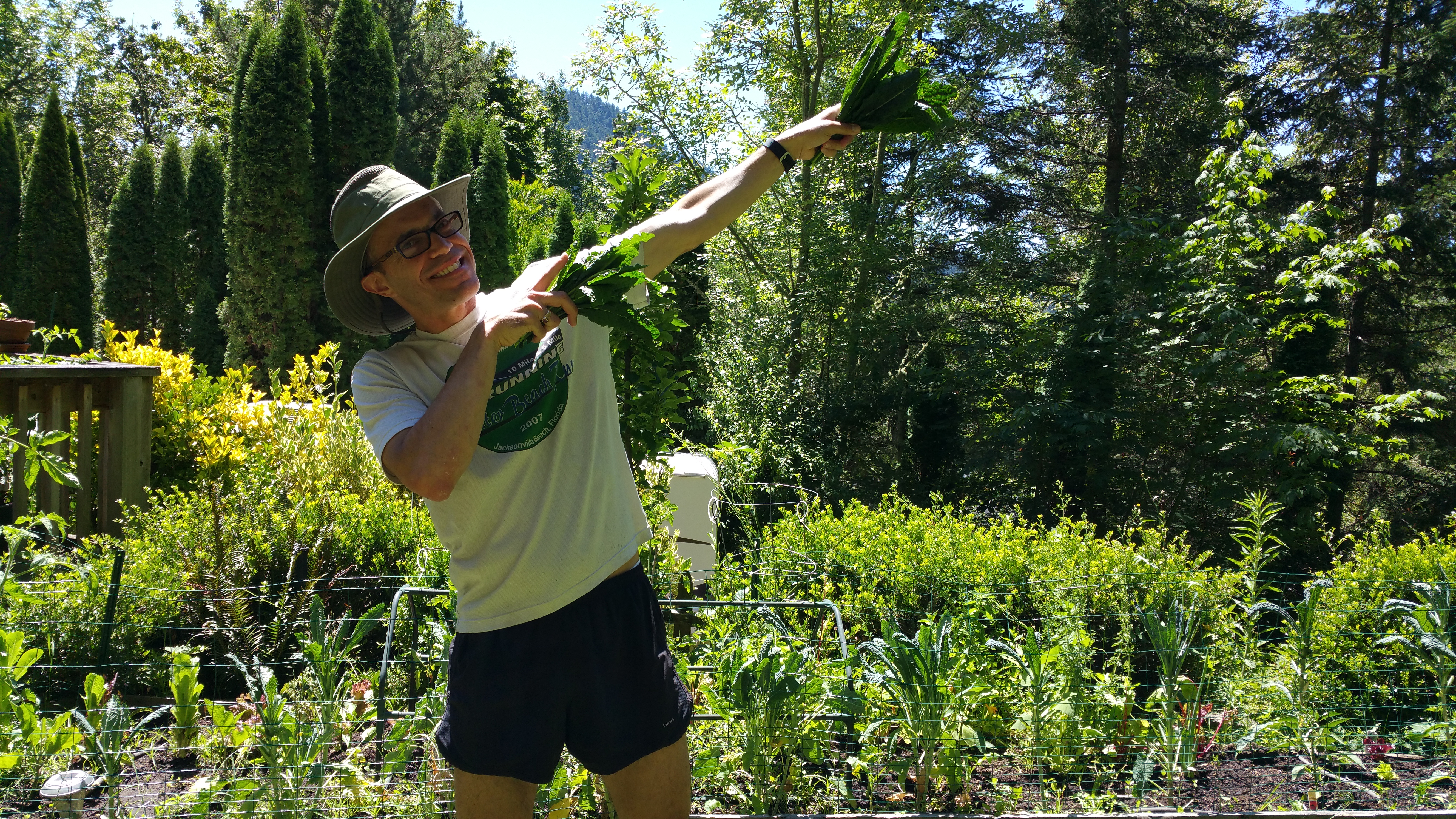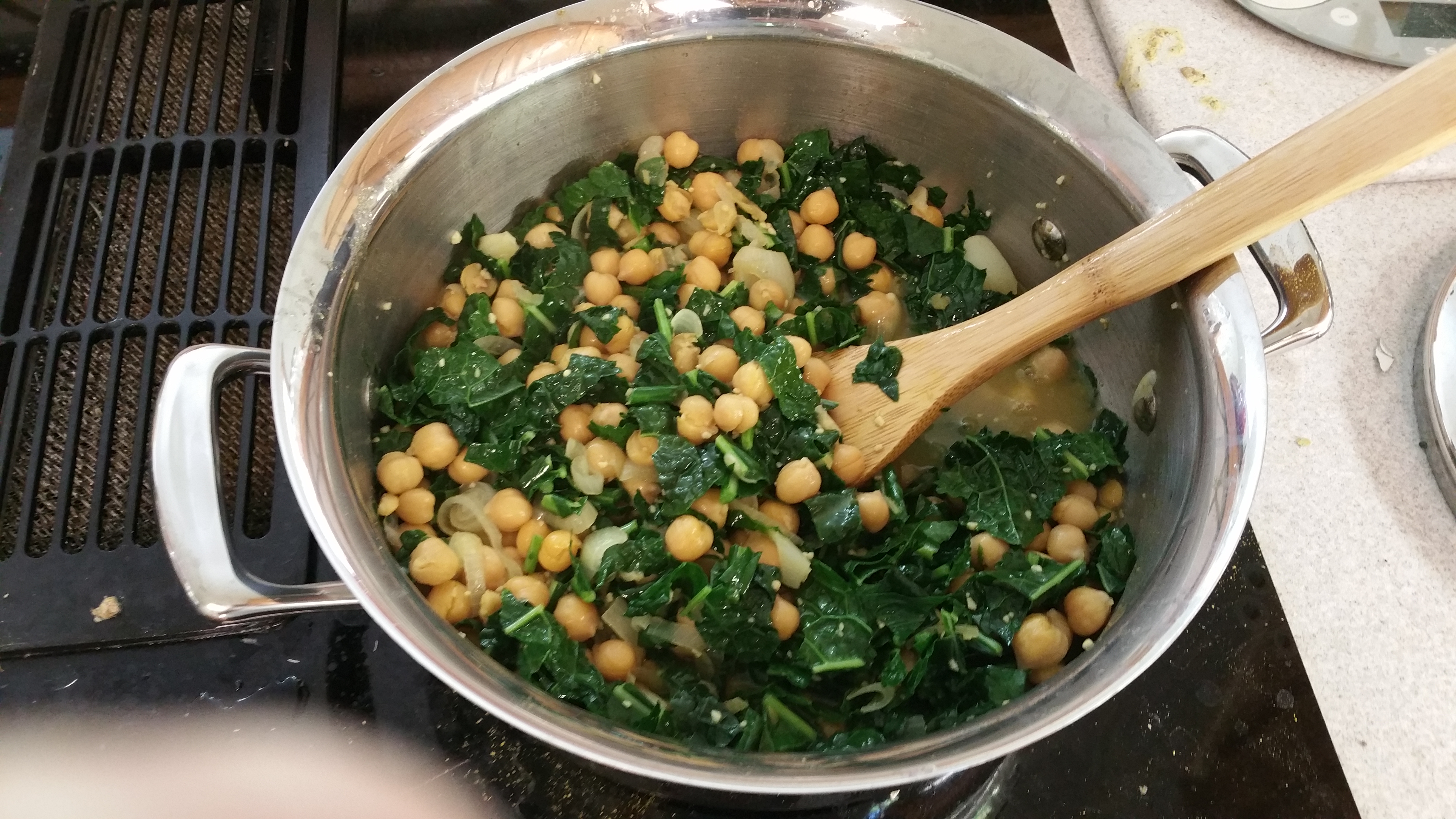
It is all smiles
during the Olympic Trials.
Minds are open,
one bad omen,
hearts are broken,
dreams are stolen.
After many miles of training,
precious time is waning.
The best athletes are here,
no more complaining.
Historic Hayward field offers the thrills and the chills. Ironic, how some athletes barely make enough to pay the bills,
while others make millions.
I’ve digressed.
Can you guess?
What is the secret to their running success?
More importantly, what is the secret to avoid sudden death?
For surely, the cure engenders true happiness.
There is a simple recipe,
and I share it with glee for free.
It has helped me
and it shall help thee.
I am accepted with provision
to the Olympic Masters 1500 exhibition.
Although with condition, I’ll offer you my vision:
With sudden death, there is no revision.

What could it be?
This secret recipe,
that grows wild like weed,
in your backyard for pennies,
right here in Eugene?
It is dinosaur kale
and before you exhale,
and get nailed six feet under,
leaving everyone to wonder,
try my Olympic stir fry.
That way you won’t die!
A preventable malady,
pandemic in today’s society,
pervasive, a formality:
To get heart disease
and die suddenly,
what a tragedy!
Here is the strategy,
my hope and the remedy.
Eat plant-based, it is plain to see,
you’ll live long without heart disease.
More importantly,
eat this Olympic stir fry,
you won’t die suddenly,
from this preventable malady.
And maybe, you can run fast like me!
Here is my famous, Olympic stir fry recipe. This recipe is loaded with vitamins, minerals, protein and phytochemicals. The best news is that it can be made in less than 15 minutes and is heart healthy!

Ingredients List:
2 TBS Coconut oil
2 Shallots
2 Garlic cloves
2 TBS Curry powder
2 cans Organic garbanzo beans (low sodium)
15-20 large Kale leaves finely chopped
Bragg’s Liquid Aminos
Lime juice
Cilantro
In a large saute pan or wok, heat coconut oil on medium heat. When melted, add shallots and garlic. Saute until translucent. Stir in curry powder. Empty the cans of garbanzo beans, including the water, into the pot. Cook for 2 minutes. Mix in kale, cover and reduce heat for approximately 5 minutes until kale becomes soft. Add Bragg’s liquid aminos to taste. Serves 3 adults. Top with lime juice and cilantro.
Note that this recipe has beans that is associated with longevity. The beans have the perfect blend of protein and carbs for any athlete.
How can kale prevent heart disease? Kale has phytosterols that inhibit cholesterol absorption. Also, kale is high in fiber which lowers LDL (Bad cholesterol) and regulates blood sugar metabolism. In men, kale increases HDL (Good cholesterol). My most recent cholesterol shows an HDL of an astounding 91! Also, my total cholesterol was less than 200 and my LDL was less than 100. A recent study suggests that HDL cholesterol may be the most important predictor of heart disease in men. Another study of 136,905 patients hospitalized for coronary artery disease showed that the majority had an LDL cholesterol at a goal of less than 100, but the HDL cholesterol was less than 40. This study suggests that keeping HDL cholesterol greater than 60 is very important in avoiding coronary artery disease.
Heart disease is a multifactorial and there are two methods to calculate your risk (10 year risk and lifetime risk). There is a plethora heart disease risk calculators but I like the 10 year risk American Heart Association's calculator from 2013. A recent study in the New England Journal of Medicine examined 50 years of data from 257,384 patients to determine one’s lifetime risk of heart disease. Lifetime risk assessment data is more accurate for predicting one’s risk of heart disease, especially for anyone over the age of 30. Take home point, even one risk factor for heart disease is one too many. The best strategy is primordial prevention, which is preventing risk factors for heart disease to begin with. The strongest modifiable risk factors to prevent are high total cholesterol, low HDL, hypertension, diabetes, and smoking. Eating the right foods is the best primordial prevention. Consumption of green leafy vegetables like kale can show us the way.
Comments
Post a Comment